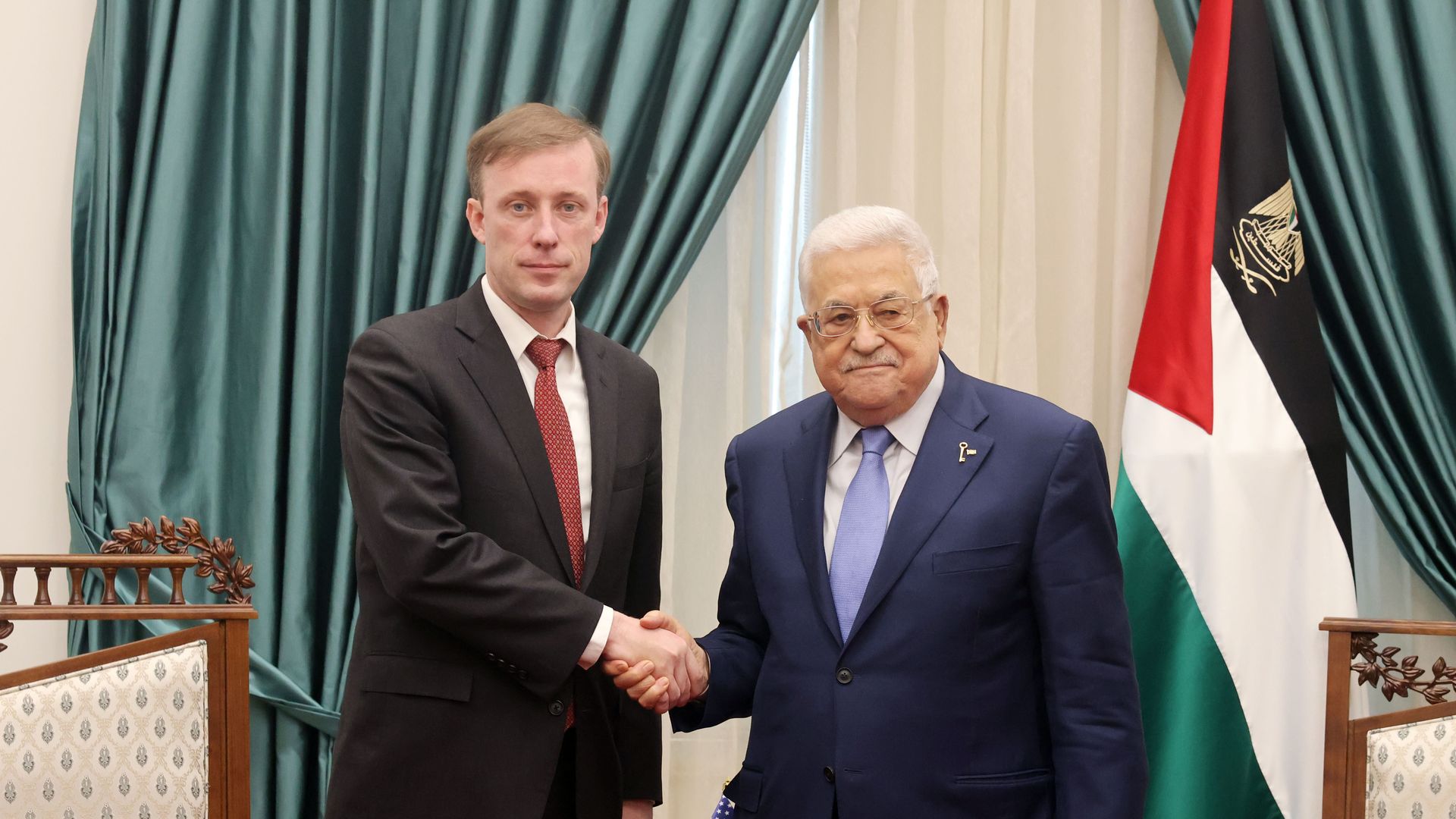 |
|
I hope you are doing well and getting some much-needed rest.
I’m writing to share J Street’s last 2023 Digest, with important updates from the region as well as J Street’s statements from this past week. As a reminder, you can always find our most recent statements on J Street crisis response page.
I’m also happy to share that J Street is hiring for a Deputy Director of Government Affairs – please feel free to share with anyone who might be interested.
Wishing you a peaceful holiday season,
Hannah
—
Hannah Morris
She/Her
Director of Government Affairs, J Street
Cell: 832-606-1817
J Street’s Congressional Resource Page
|
This week on j street
|
|
|
| STATEMENT |
|
J STREET TO BIDEN: ACT NOW TO SAVE LIVES, HOSTAGES, CHANCE FOR LONG-TERM PEACE
|
| Read more → |
|
|
|
|
|
| STATEMENT |
|
J STREET EXPRESSES DEEP SYMPATHY OVER HOSTAGE DEATHS, URGES RENEWED APPROACH
|
| Read more → |
|
|
|
|
|
What we’re reading
|
Democratic lawmakers demand oversight on U.S. assistance to Israel
|
 |
| Democratic lawmakers are increasingly airing concerns about insufficient information provided to them and are demanding more congressional oversight concerning U.S. support for Israel in its ongoing war in the Gaza Strip. President Biden has faced mounting pressure from Congress in recent weeks as his administration has stood resolutely by the United States’ closest ally in the Middle East. Now, lawmakers are urging Biden to impose conditions on U.S. aid to Israel, to pressure the Jewish state to change course or to push for a cease-fire. But the information needed to guide policy decisions has been lacking, Democrats in the House and Senate have said… The Biden administration, along with most of Congress, has vowed to back Israel’s “right to defend itself” after Hamas slaughtered more than 1,200 people, including dozens of children and babies, on Oct. 7, and has continued to fire rockets at Israel. But the mounting allegations of human rights violations — coupled with statements from top Israeli officials about wiping Gaza “from the face of the Earth” and calling for Gazans’ “emigration” to other countries — have unnerved U.S. lawmakers and even Biden, who recently remarked that some of Israel’s bombing in the territory has been “indiscriminate.” |
| read more |
Inside U.S.-Palestinian talks about post-war Gaza
|
 |
| The Biden administration is proposing the Palestinian Authority re-activate members of its security forces in Gaza to prepare a local security and police force for the enclave after the conflict, U.S. officials say. The move is part of the administration’s stated goal to “revitalize” the unpopular and weak Palestinian Authority so it could once again play a role in governing the Gaza Strip in the coming months… U.S. officials say the Biden administration wants the 87-year-old Abbas to conduct wide-ranging reforms, including injecting “new blood” into the Palestinian Authority’s leadership. Abbas is in the 18th year of a four-year term and has continued to delay elections… Biden administration officials admit it will be difficult to move forward with resuming the Palestinian Authority’s role in Gaza without Israel’s consent… A senior Israeli official said Sullivan didn’t raise the idea of re-activating Palestinian Authority security forces in his talks in Israel last Thursday. |
| read more |
Gaza, smashed by Israeli strikes, sees new threat: Disease
|
 |
| Israeli strikes killed one of Tahani Abu Taima’s sons and one of her brothers, she says. But she fears a different killer is stalking what’s left of her family: disease. The World Health Organization warns that Gaza’s health-care system is “collapsing” and that “worrying signals of epidemic diseases” are emerging. Abu Taima’s 2-year-old daughter is suffering from diarrhea, vomits, sneezes and is “shaking from the cold and lack of food,” the mother of six told The Washington Post from the southern Gaza city of Khan Younis. The child “asks me for food all the time, but I am unable to provide,” Abu Taima said. “Which forces me to give her anything, even if it is contaminated.” The family is sheltering in Nasser Hospital, but the overwhelmed facility is providing only limited treatment to the most severely wounded. Among patients and displaced people, crowded together without clean water or sanitation, infections spread rapidly. Abu Taima has no access to medicines. |
| read more |
Analysis | Nods and Nudges: How U.S. Is Pressing Israel to Rein in Gaza Assault
|
 |
| President Biden and his top aides have engaged in an increasingly awkward dance in recent days, prodding Israel to change its tactics in the war in the Gaza Strip while still offering it robust public support. Mr. Biden said last week that Israel was losing international support because of its “indiscriminate bombing” of Gaza, a much more critical assessment than his earlier public statements urging greater care to protect civilians. On Monday, Defense Secretary Lloyd J. Austin III, in his second visit to Israel since the Hamas-led Oct. 7 attacks, sought to take the temperature down a few degrees… Mr. Austin’s visit was part of a full-court press by the Biden administration to urge Israeli officials to wrap up the “high-intensity” phase of the war and begin carrying out more targeted, intelligence-driven missions to find and kill Hamas leaders, destroy the tunnels used by the militant group and rescue the people taken hostage on Oct. 7. While U.S. officials have not publicly discussed a timetable, privately they say that Mr. Biden wants Israel to switch to more precise tactics in about three weeks. |
| read more |
Israel cornering itself into postwar Gaza military occupation, Western diplomats warn
|
 |
| Israel is setting the conditions for the Israel Defense Forces to reoccupy Gaza after the war, three senior Western diplomats told The Times of Israel over the past week. The diplomats — two of whom are ambassadors — acknowledged Israel’s stated desire to avoid such a scenario. However, they explained that Prime Minister Benjamin Netanyahu’s rejection of the Palestinian Authority returning to govern Gaza, his failure to advance viable alternatives, and Jerusalem’s assertion that Israel will maintain overall security control of the Strip are dissuading regional and global actors from cooperating with US efforts to rehabilitate the enclave after the war… Israeli officials have privately likened the future status they envision for Gaza to that of the West Bank’s Area B, where Israel maintains security control while not being responsible for civilian services for Palestinians. “No Arab force will agree to enter Gaza under such circumstances,” said one of the diplomats. |
| read more |
Opinion | Israel is struggling to destroy Hamas, but it’s destroying Gaza
|
 |
| Even after waging one of the most intense, heavy military campaigns in recent history, Israel has only neutralized a fraction of the militant group’s armed strength. And, in the process, it has ravaged the embattled territory where Hamas has held sway, displaced close to 90 percent of the population, flattened whole neighborhoods, triggered a sprawling humanitarian disaster and found itself flailing in a losing battle for global public opinion… Concerns are only deepening about the smoldering status quo. Much of Gaza’s once-densely populated north has been leveled, and the bulk of the territory’s population is crammed into makeshift accommodations near the southern Rafah border crossing with Egypt. The prospect of an exodus of refugees is becoming more real — a displacement that would be viewed by many in the region as yet another tragic moment of Palestinian dispossession, a trauma that would further roil the politics of the Middle East and likely undermine Israel’s rapprochement with some of its Arab neighbors. “Whether that [refugee flow] happens as a result of a deliberate Israeli military strategy or by default … that may be a distinction without a difference,” a former senior Egyptian diplomat told my colleague Claire Parker. |
| read more |
Who are the Houthi rebels? What to know about the Yemeni militants attacking ships in the Red Sea
|
 |
| For weeks, Houthi rebels in Yemen have launched drone and rocket attacks targeting ships in the Red Sea and the Bab al-Mandab Strait, a strategic passage that connects the Red Sea and the Arabian Sea. Below is a look at who the Houthis are, how they became such a formidable if unofficial military power, and why they are launching attacks on the vital trade route. |
| read more |
|